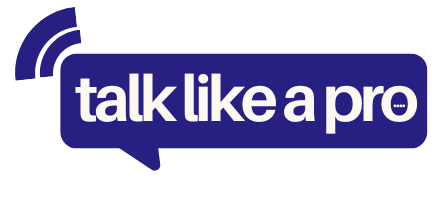Ever found yourself in a situation where someone calls you “NIGGA” and you need a quick and savage comeback?
Well, you’re in the right place. In this article, we’ll explore some clever and witty responses to handle such a sensitive and disrespectful situation.
It’s important to respond thoughtfully, so let’s dive into some effective comebacks that can help you navigate this challenging scenario.
How should you respond when someone calls you “NIGGA”?
To respond to N Word you can say, “I don’t appreciate being called that. Please don’t use that word around me.” It’s crucial to assert your boundaries and make it clear that such language is unacceptable.
Top 10 Best Responses
1. “Please don’t use that word around me.”
This response sets a clear boundary and conveys that the use of the word is unwelcome. It’s direct and assertive, sending a strong message.More similar responses:
- “I find that word offensive. I’d appreciate it if you refrain from using it.”
- “That’s not a word I respond to. Let’s keep the conversation respectful.”
2. “I’m not okay with that language.”
This straightforward reply communicates your discomfort with the use of the derogatory term. It’s important to express your feelings clearly.More similar responses:
- “Let’s keep the conversation respectful. That word is not acceptable.”
- “I don’t tolerate such language. Please refrain from using it.”
3. “Do not address me using that word.”
This response firmly asserts that the use of the word is not permissible when referring to you. It’s important to be unequivocal in such situations.More similar responses:
- “I have zero tolerance for that word. Please choose your words carefully.”
- “I don’t respond to that term. Let’s maintain a respectful dialogue.”
4. “I find that term highly offensive. Please refrain from using it.”
Expressing the offensiveness of the word and requesting its avoidance is crucial. This response conveys the impact of the language used.More similar responses:
- “Using that word is not acceptable. Let’s communicate respectfully.”
- “I don’t engage in conversations where that word is used. Please be mindful.”
5. “Let’s keep the conversation respectful. That word has no place here.”
Emphasizing the importance of respectful communication and excluding derogatory language is essential. This response sets a clear standard for the conversation.More similar responses:
- “I don’t engage when that word is used. Please choose your words wisely.”
- “Respectful dialogue is non-negotiable. That word is not welcome here.”
6. “I don’t respond to that term. Please choose your words carefully.”
Asserting that the use of the word is ineffective in addressing you is important. This response communicates the ineffectiveness of the derogatory term.More similar responses:
- “That word holds no weight in our conversation. Let’s communicate respectfully.”
- “I don’t acknowledge that term. Please use respectful language.”
7. “Using that word is not acceptable. Let’s communicate respectfully.”
Setting a clear standard for respectful communication is crucial. This response emphasizes the importance of maintaining a respectful dialogue.More similar responses:
- “I don’t engage when that word is used. Please choose your words wisely.”
- “Respectful dialogue is non-negotiable. That word is not welcome here.”
8. “I don’t engage when that word is used. Please choose your words wisely.”
Communicating that your engagement is contingent on respectful language is essential. This response sets a clear expectation for the conversation.More similar responses:
- “Respectful dialogue is non-negotiable. That word is not welcome here.”
- “Using that word is not acceptable. Let’s communicate respectfully.”
9. “Respectful dialogue is non-negotiable. That word is not welcome here.”
Emphasizing the non-negotiable nature of respectful dialogue is important. This response sets a firm standard for the conversation.More similar responses:
- “I don’t acknowledge that term. Please use respectful language.”
- “That word holds no weight in our conversation. Let’s communicate respectfully.”
10. “That word holds no weight in our conversation. Let’s communicate respectfully.”
Highlighting the insignificance of the derogatory term in the conversation is crucial. This response emphasizes the need for respectful communication.More similar responses:
- “Using that word is not acceptable. Let’s communicate respectfully.”
- “I don’t engage when that word is used. Please choose your words wisely.”
How to reply to a girl
When responding to a girl who uses the derogatory term, it’s important to be firm and assertive. For example, you can say, “I don’t appreciate being addressed that way. Let’s maintain a respectful conversation.” It’s crucial to set clear boundaries and communicate your expectations for respectful dialogue.
How to reply to a guy
In addressing a guy who uses the derogatory term, a direct and unwavering response is essential. You can assert, “Using that word is not acceptable. Let’s communicate respectfully.” It’s important to convey your stance firmly and emphasize the need for respectful communication.
Key Takeaways
- Responding to the use of the derogatory term “NIGGA” requires firmness and clarity.
- Setting clear boundaries and emphasizing the importance of respectful communication are key in handling such situations.
- It’s essential to assert your expectations for respectful dialogue and communicate the unacceptability of the derogatory term.
In conclusion, navigating the use of the term “NIGGA” demands thoughtful and assertive responses. By setting clear boundaries and emphasizing the need for respectful communication, you can effectively address such situations.
Remember, your response plays a significant role in shaping the conversation, so prioritize assertiveness and clarity in your comebacks. Stay empowered and advocate for the respectful dialogue you deserve.



